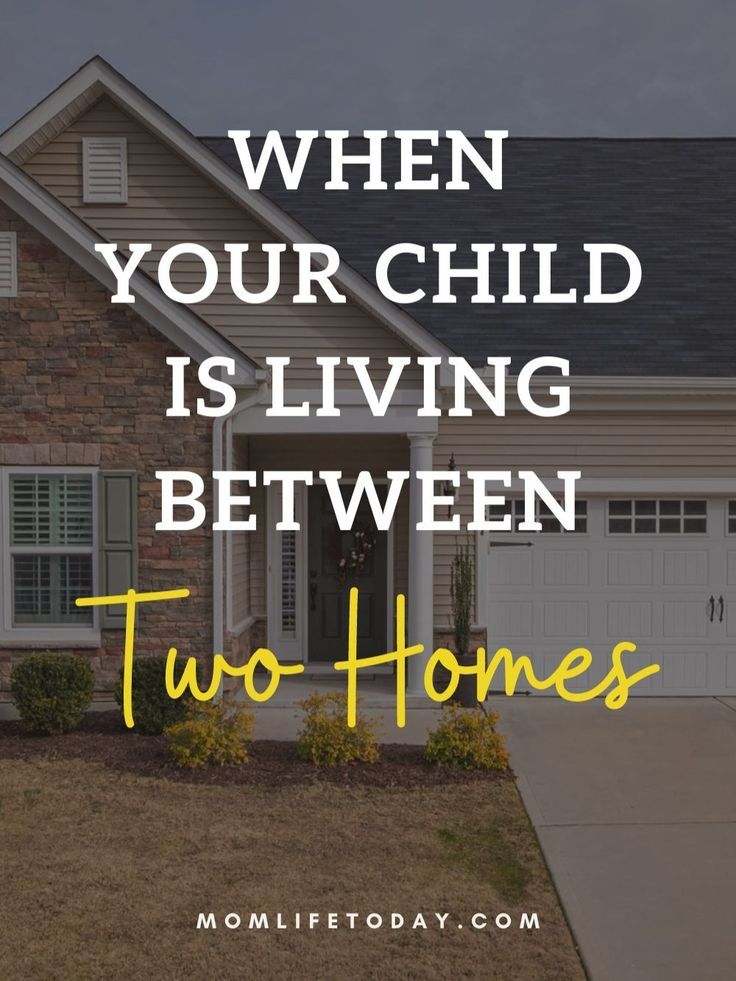
Last Updated on January 5, 2026
“Laura, my 13-year-old stepson just told my husband that he doesn’t want to come to our house anymore,” the stepmom shared.
“My spouse is devastated because he won’t see his kids as much. I’m just angry.”
“How could they do such a horrible thing to him after all he has done for them,” she continued. “I’m sure it’s because they don’t like the rules and discipline we have at our house. Their mom lets them do whatever they want, so of course they will choose her house. How can I comfort my broken-hearted husband?”
Unfortunately, this scenario is a VERY common situation in today’s stepfamily. And this stepmom is correct about one thing—it’s heartbreaking—for everyone.
As someone who has worked in divorce recovery and stepfamily ministries for over twenty-five years, I began to see a change when the court system changed its views about visitation between parents.
Read This Next: Four Most Common Stepfamily Myths
Splitting Time Between Two Homes
Originally a child lived with one parent and visited the other on weekends. When my parent’s got a divorce in the mid 60’s that’s how visitation was granted. Now the system believes it’s best for the child to spend half of the child’s time in mom’s home, the other half in dad’s home.
This all sounds well, good, and wise. When the laws changed, I was all for this new system. Now I’m not.
After many years of ministry and watching kids live in two homes instead of one, I have realized what a horrible affect this has had on the children and teens.
It might be better for the parents. But it’s harder on the kids. They loathe it. The kids resent going back and forth every few days, and neither residence feels like “home.”
When kids lived with one parent and visited the other on weekends the visit was “special” and there was no bickering about the child/stepchild doing chores, addressing homework, refusing certain foods, because it was only for a weekend.
Now that the child resides in two homes his/her brain is much more scrambled. When mom and dad parent differently and have vastly opposite views, the kids suffer.
In one home son Joshua must clean his room, brush his teeth, put dishes away, turn his phone off at 8pm, go to youth group at church, and walk the dog. In the other home none of these are required.
He can watch video games any time he desires and there are no phone restrictions. He has very few chores, the cat takes care of herself, and they often eat take out. He mostly does what he pleases because this parent works long hours and doesn’t have the ability, knowledge or energy to oversee him.
The two homes are like living in two radically different countries. A child’s brain doesn’t function well with a lack of structure and consistency.
His mind is confused. He can’t remember which of the two homes he left his homework, much less whether he’s done it. Is his football uniform, at mom’s house or dad’s house? And did anyone toss it in the laundry?
He misses the comforting purr from his cat when he leaves one house, and he can’t have a cat at the other house because his stepsister is allergic to cats. One stepparent has a high priority for manners and requires Joshua to address everyone when he enters a room. At the other parent’s house, these rules don’t apply.
No wonder the child is confused, frustrated, resentful, and moody.
The Problem with Back and Forth
When I started in this ministry years ago, it was rare that a child stopped visiting the other home during adolescent or teen years. The rare exception is when dad moved away from the child.
Today, it’s VERY normal. A child suddenly states “I’m not going back and forth anymore. I’ll come to your house occasionally but I’m not doing the 50/50 anymore.”
Typically, it’s the dad’s house that loses the child. And like the family listed in this article the dad is crushed. And confused.
There are two mistakes’ parents, in particular dad, make when this occurs:
- First, the parent feels so rejected by the child that he or she says, “OK if you don’t want to be here, I’m not going to make you visit. If this house is so horrible, and you hate it here so much, go ahead and go. The choice is up to you.” And the child thinks “Wow! That was easy. Obviously, I was right my parent doesn’t even care if I’m there”
- Second, we assume and blame the other parent. The stepparent will typically say the spouse’s child doesn’t want to come to their home because, “Joshua doesn’t like our rules” and “I’ll bet his other parent put this in his head.”
Often neither of those things are accurate. What is true is they don’t like living in two homes because neither feels permanent. Neither feels like “my home,” my consistent soft place to fall.
When I travel, and I’ve been gone a few days, my brain starts thinking, “I can’t wait to get back home to my sanctuary, my own bed, bath, kitchen, and quiet space.
If I, as an adult, have that longing to be in the safe space where I feel comfortable, and cozy, why is it so hard to believe that a child, who doesn’t have a developed brain yet, won’t long for the same?
Why do I believe a child’s brain should and would cope with it better?
Understanding the child’s brain is the key.
And the parent who is losing time with their child will likely need to humbly receive help, from a professional who specializes in this arena, to discover how to stay connected to a child who desires to leave the home.
BONUS:
Here’s a great question to ask your kids, from Dr Michelle Watson Canfield, The Dad Whisperer:
In what ways have I hurt you during the divorce from your mom/dad?


